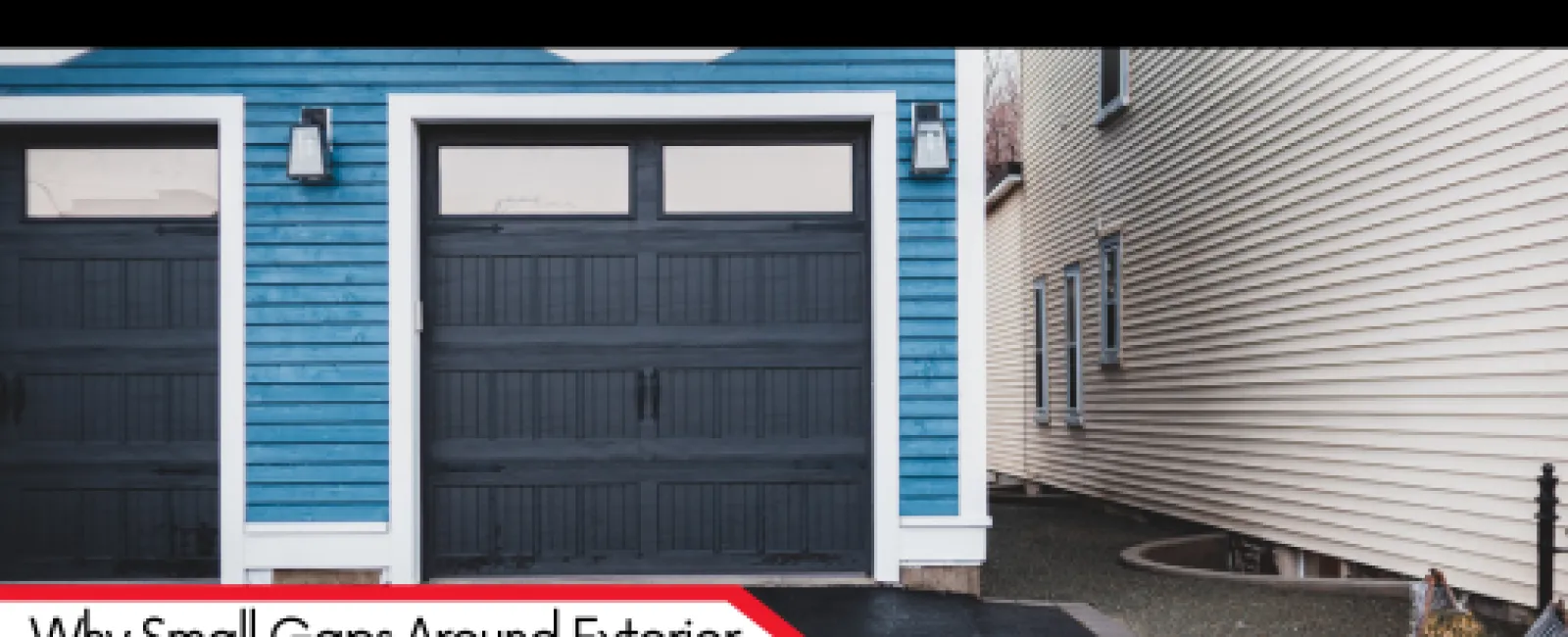In Georgia, where high humidity, heavy rain, and diverse soil conditions are the norm, homeowners face unique challenges when it comes to maintaining their properties. Even in brand-new homes, small construction details can make a big difference in long-term performance and protection. One of the most overlooked of these details involves small gaps around exterior wall penetrations—especially around drain lines, HVAC components, and utility connections.
What might appear as a simple gap or minor opening can actually invite a range of costly problems, from water damage and pest intrusion to foundation settlement and energy inefficiency. During LunsPro Inspection Group's Atlanta, Alpharetta, and Athens Residential and Commercial Inspections, as well as inspections across the broader Southeast, inspectors often identify small voids that were unintentionally left unsealed during the construction process. Recognizing and addressing these small details early is key to protecting your home's structure, efficiency, and long-term value.
Why Exterior Wall Gaps Are Common in New Homes
It's easy to assume that a brand-new home is free from construction flaws, but even the best-built homes can have minor oversights. One of the most frequent occurs where condensate drain lines, dehumidifier outlets, or HVAC conduits exit through the exterior wall. Builders often focus on function—getting the system installed and working properly—but sealing around these penetrations can sometimes be overlooked.
This can result in small openings around pipes or utility lines that pass through the siding, brick, or foundation wall. While these gaps may not look concerning at first glance, they can serve as entry points for moisture, air, and insects. Over time, they can lead to bigger structural or environmental issues—particularly in the Southeast, where humidity and rainfall can be relentless.
Why Sealing Matters in the Southeastern Climate
Homes across the Southeast—especially Georgia—are constantly exposed to elements that test their resilience. Warm, humid air and frequent rainstorms can turn even the smallest cracks or gaps into pathways for damage.
Here are several reasons why sealing and inspecting these small penetrations are so important in this region:
-
High Humidity: Constant moisture in the air means condensation buildup around cold surfaces, such as HVAC drain lines. Unsealed gaps allow this moisture to seep into walls or basements.
-
Heavy Rainfall: Southeastern storms can drive rainwater into unprotected openings, leading to water intrusion and structural decay.
-
Soil Movement: Expansive clay and sandy soils can shift with changes in moisture, widening existing gaps and affecting foundation stability.
-
Pest Activity: Warm climates foster year-round pest populations, making even the smallest entry points potential access routes for insects and rodents.
For these reasons, LunsPro Inspection Group emphasizes that even seemingly minor details like a small gap around a pipe or drain line can have big implications if left unaddressed.
The Hidden Risks of Small Exterior Gaps
1. Water and Moisture Intrusion
Moisture is the number-one enemy of structural longevity in Southeastern homes. When water seeps through small openings, it can accumulate behind walls, leading to rot, mold, and deterioration. Over time, this can compromise framing materials, insulation, and even a home's foundation.
2. Pest Infestation
Insects like ants, roaches, and termites, as well as small rodents, only need a small opening to gain entry. Once inside, they can cause damage that's both unsanitary and expensive to repair. In humid areas, termite activity is especially concerning—these pests are drawn to moisture and can exploit the smallest of gaps to access structural wood.
3. Energy Loss and Efficiency Issues
Air leaks from unsealed openings can cause energy waste. Conditioned indoor air escapes, while humid outdoor air enters, forcing your HVAC system to work harder. This not only increases energy costs but also shortens the lifespan of your equipment.
4. Foundation Concerns
When moisture consistently seeps near or into the foundation, it can cause soil erosion, shifting, and settlement. Over time, this may lead to cracking walls, sloping floors, or uneven door frames—symptoms that Southeastern homeowners know can signal costly foundation issues.
How Professional Inspections Identify These Problems
The advantage of hiring a company like LunsPro Inspection Group is the level of thoroughness that comes with experience and technology. During Georgia home inspections and property evaluations throughout Atlanta, Alpharetta, and Athens, certified inspectors focus on identifying not only visible defects but also potential long-term risks.
Typical inspection steps include:
-
Exterior Walkthrough: Inspectors examine the perimeter for gaps, penetrations, or cracks in the siding, foundation, or around utility lines.
-
Moisture Detection: Using tools such as infrared cameras and moisture meters, inspectors identify hidden areas of water intrusion.
-
Drain Line and HVAC Checks: They confirm that condensate and dehumidifier lines are properly installed, sealed, and draining away from the home.
-
Foundation and Grading Review: The team evaluates whether the grading and drainage systems are keeping water directed away from the structure.
-
Documentation and Recommendations: Each finding is clearly reported, with recommendations for repair or builder follow-up if the home is new construction.
The combination of technology and professional expertise ensures that small defects—like the ones seen around condensate drain lines in new homes—are caught and corrected before they lead to major damage.
The Value of Proactive Maintenance
One of the best ways to protect your property from long-term structural issues is through consistent, proactive maintenance. A small gap today could turn into a serious problem next season. Annual or semi-annual home inspections help homeowners stay ahead of wear and tear caused by the Southeast's demanding environment.
Homeowners can also perform their own quick checks throughout the year:
-
Look for cracks or separations around pipes, vents, or utility lines.
-
Ensure caulking and sealants are flexible and intact.
-
Keep exterior drainage paths clear to prevent water pooling near the foundation.
-
Monitor basements and crawl spaces for signs of moisture or pests.
However, a professional inspection by LunsPro Inspection Group/index provides the depth of assessment needed to ensure nothing is missed—especially for properties exposed to high moisture levels, heavy rains, or changing soil conditions typical in this part of the country.
Why Southeastern Homeowners Choose LunsPro Inspection Group
Whether performing Atlanta, Alpharetta, or Athens Residential and Commercial Inspections, or expanding services into nearby states, LunsPro Inspection Group has earned a reputation for expertise, integrity, and thoroughness. The company's inspectors bring years of experience across various building types and climates—making them uniquely qualified to identify both common and hidden concerns specific to the Southeastern region.
By combining advanced technology with a detailed, team-based inspection process, LunsPro provides homeowners with actionable insights, clear documentation, and practical solutions. That level of precision is especially valuable in a climate where humidity, rainfall, and shifting soils demand constant vigilance.
Owning a home in the Southeast comes with incredible benefits—beautiful landscapes, mild winters, and strong communities—but also unique challenges. The combination of humidity, heat, and seasonal storms means that small maintenance oversights can lead to major repair bills down the line. Something as simple as a small gap around an exterior wall penetration can open the door to water, pests, and structural concerns.
The good news is that these issues are entirely preventable. By partnering with LunsPro Inspection Group, homeowners across Georgia gain access to industry-leading inspection expertise and technology. Regular Georgia home inspections and Southeastern property evaluations help ensure that small problems are found and corrected early—saving thousands of dollars and protecting one of your most valuable investments. In a region where moisture and movement are part of daily life, proactive inspection and maintenance are the key to long-term home health and peace of mind.

